German collective guilt
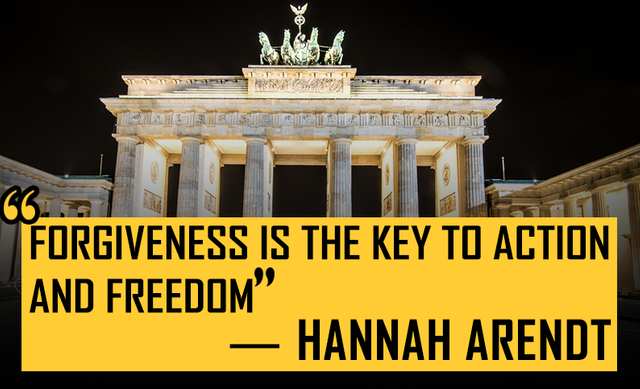
Long before I started my career in Modern Languages I was always attracted to German culture and its success as a society. Regardless of what happened in World War II, I always loved German culture, and if I had to make sense of that attraction I would say that I don't know the reason why. Through the joy of fate, I was able to study my current major of Modern Languages at the University, where I had the joy of learning the German language and deepening my knowledge of the historical, cultural, social and economic aspects of Germany.
I can say that few films reflect what Nazism meant to the Germans and how embedded it was in the daily lives of the Germans as the film Der Untergang (Downfall). This film portrays the last days of Hitler and his relatives in the bunker where they took refuge when German defeat was imminent and the allies, determined, took over the city of Berlin. Across Germany Nazism was a polarizing fact because it was understood as a way of life, a way of being for many Germans while at the same time it generated hatred of the non-aligned. After the propaganda and indoctrination of the Nazis and their successive defeat, it became very clear what would mark the world: the world would never be the same after the Second World War.
There are many testimonies that have transcended not only Anne Frank's Diary but other testimonies that show how nazism managed to influence so many Germans. Just as many despised Nazism for its actions, we found people for whom National Socialism and all that it implied was the only way they wanted to live. People like Magda Goebbels, who killed her children with cyanide in the bunker, convinced that a world without National Socialism would not be good enough to offer them a promising future. Or the suicides of hundreds of individuals and entire families before the arrival of Soviet troops seeking to avoid retaliation as losers in the war.
Germany's defeat in World War II would mark the end of a stage of which many today remain ashamed.

The First World War undoubtedly marked the German pride, it was shattered and on the ground. After the armistice of Compiègne, which eliminated hostilities between the two sides, came the Treaty of Versailles of 1919, which was practically the main cause of the Second World War. This treaty stipulated that Germany had been the sole cause of the conflict of the first one, therefore the country would lose territories and would be annexed to France, Poland, Denmark, and Belgium, among others, as an act of economic and territorial compensation for the damages generated. Now whether it was fair or not is a subject for further analysis. In addition to this treaty, another one was also created called the League of Nations, whose purpose was collective security and arbitration in future international conflicts. This treaty and its members limited the number of German Army soldiers and prohibited the country from building tanks and heavy artillery.
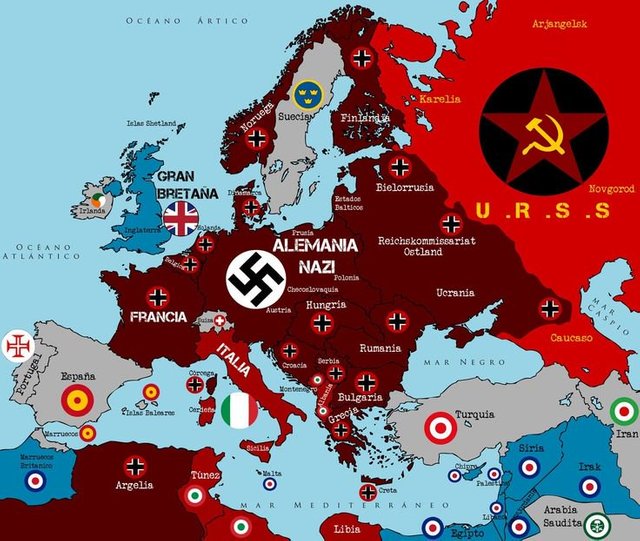
Source
In January 1933 Hitler was appointed chancellor of Germany in an attempt to bring to power a sheep that was highly and easily manipulated, according to the vision of Franz von Papen, who would go down in history as a key figure in the dissolution of the Weimar Republic. However, Von Papen failed in his prediction, and even then Hitler seized absolute power and ended up confirming it a year after the death of the president of the republic with a plebiscite that made him the Führer. He managed to obtain an absolute and overwhelming majority of around 39 million votes, representing 90% of Germany's active voters. This, however, should not be misleading since by then, many basic freedoms and rights had been eliminated, some political parties had gone underground as illegal and the pressure to vote in favor was growing. However, the relative lack of opposition to a current that had existed since the 1920s - just when the German people received the harsh conditions of the Versailles Treaty of Versailles with humiliation and anger - and which did not reach its peak until the 1930s was a mixture of the political, social and philosophical context without which it would not be possible to approach the events objectively.
It is true that in all this mixture each context played a determining role, it would not be irrational to speculate or to suppose that everything would have been different if the philosophical currents and the collapses of the existing political systems had not been confronted with a population humiliated after the defeat of the First World War. A Germany incapable of having a feasible economic growth due to the expenses generated by the cost of the Treaty of Versailles contained within its borders the discontent of a population that did not understand why it should pay for a war that they, individually, had not initiated, much less sponsored. Added to all this, the crisis of 1929 would end up collapsing the German economy as a whole, plunging it into its greatest crisis, which resulted in even greater discontent for its population. These factors undoubtedly played an essential role in legitimizing Hitler and his Nazi government.
With respect to the political context, social democracies were losing strength to other systems of government that were more effective - such as the Mussolini government - and that were proving to have better strategies to control the economic chaos in which various countries found themselves due to the Great Depression. There were, no doubt, many references at the time, including Carl Schmitt, who criticised the mistake of equating democracy with parliamentarian when the real equivalence was homogeneity. Parliament was seen not as an agora where good was sought for the whole community, but where small groups with different interests argued and made chaos reign due to the eruption of mass society in political life. Thinkers such as Schmitt or Weber, among the most prominent in this thought, stated that there were only two options left in the face of the collapses of the Parliaments: either one group imposed itself on another or sought to obtain a more homogeneous society in terms of interests and objectives.
In the cultural and philosophical context it was marked by currents opposed to positivism. The German geopolitics and the use of the concept of "living space" took hold as a weapon for war and the justification for the expansion of German borders: it was essential for German National Socialism to gain more space to develop and grow.

As I mentioned earlier, National Socialism was a polarizing fact, therefore the destiny and future of it would be called to be or not be, there were no gradualisms for it. This was the premise that many German citizens had during the years of the regime, during World War II and even after Hitler's death. The Allies would face a challenge no less complicated than the war against Germany: They would have to de-indoctrinate and reverse the thought processes already implemented in a German society over the last 20 years.
Between July and August 1945, Churchill, Truman and Stalin met in Potsdam to agree on the future of Germany, in what is now known as the Potsdam conference. It would then establish the administrative division of the country - British zone, French zone, Soviet zone and American zone - as well as the creation of a supreme control council, where the real power of the country would reside, consisting of the military commanders of the four zones of occupation. The plan of the four D's was then defined: denazification, demilitarization, discard and democratization.
Demilitarization and discard have been implemented without waiting. Soon, military traditions, such as the wearing of medals and official uniforms of any kind, were banned in all occupied areas. Monuments, posters and plaques that magnified the German Army were also banned; thousands of bookshops promoting militarism and violence disappeared from the bookshops. From the beginning of the occupation, moreover, the entire exhibition of Nazi symbols, from swastikas to the fascist salute, was banned.
Democratisation, educating again in democratic values, was a difficult but fundamental task: the Germans had to be shown that the system in which they had been educated for more than ten years contradicted many fundamental rights and international laws. This process was helped by actions such as the creation by the US side of the newspaper Die Neue Zeitung, aimed at the German population and intended to be a means of convincing them that militaristic ideas should be eliminated. It served as a megaphone to give voice in its pages to German intellectuals who defended internationalism, democracy or political liberalism. Economic growth, sponsored by the Marshall Plan, helped to establish and solidify democracy by linking an improvement in the quality of life of individuals with the democratic opening of the country.

The process of denazification was a more subjective mission, in which boundaries were removed and blame faded into the chain of command. While all sides on the winning side agreed that the crimes committed should be found guilty and made public, the procedure was unclear: Whose fault was it exactly, the high officials? or all the Germans?
The film and book The reader deals with this very subjective question, leaving the door open to multiple interpretations and showing the difficulty of condemning and understanding at the same time. Guilt is no longer so clearly defined when there are difficulties in distinguishing between those who were engaged in watching and observing as atrocities occurred, those who actively participated in Nazi crimes, and those who were less guilty or indirectly guilty. Even Hannah Arendt, an exiled political philosopher, interpreted, after the trial of Eichmann, what she later defined as "the banality of evil": where Arendt states that individuals simply followed orders and that they were therefore not to be blamed. To explain his theory Hannah imagined a kind of swarm, a mega-organism where everyone just followed the dictates of the thinking head, the leader. And while he devoted his entire life to warning of the symptoms of totalitarian societies, his claims risked absolving many faults.
New terms such as "collective guilt" or "collective responsibility" were therefore introduced into German society, as it was understood that everyone, in one way or another, had been complicit in Nazism. The propaganda was then used in the opposite direction: a massive campaign was launched to instil a sense of guilt and shame throughout German society. Just as editorials and newspapers were created to promote democracy, they were created to ensure that each and every German had daily contact with the crimes committed under Hitler's regime. The use of posters with actual images of the victims in concentration camps became commonplace; in some localities near concentration camps, people were guided to see the bodies and atrocities in the front row. The same phrases were constantly running through the streets of Germany, accompanied by images of corpses or victims: "You are guilty of this!"; "These atrocities, your fault!". During those years, a number of awareness-raising films were even produced, including Welt im Film No.5.
If we consider that the Nazi party had nearly nine million members in 1945, there is no doubt that looking for direct culprits within that number of people was complicated. Thus, the Frageborgen political questionnaires were launched and distributed in the western parts of Germany with 133 questions over 12 pages to be answered by each citizen. According to the responses, a distinction was made between different levels of guilt or involvement with Nazism and its crimes. However, the questionnaire did not solve the main problem: an administration still dominated by ex-affiliates of the party. Condemning or trying them without collapsing the system - again - was a virtually impossible task.
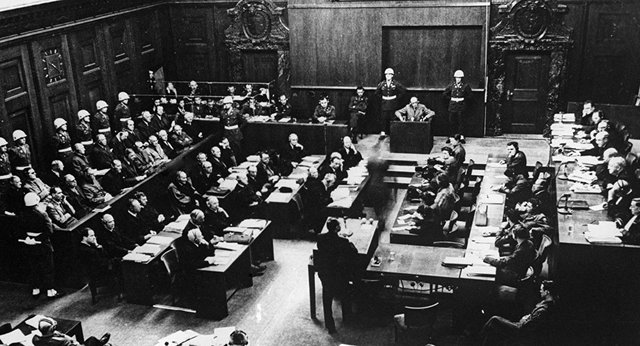
Source
The trials held in Nuremberg between 1945 and 1946 are an example of the shortcomings of the denazification process. Despite the fact that they sought to clean up responsibilities and pass sentences and sentences for all officials and leaders or collaborators of the Nazi regime, the truth is that many of them had fled to other countries and were not tried until many years later. Others were tried and acquitted or sentenced to very little punishment, considering the extent of the crimes committed. Of the 24 Nazi leaders tried in Nuremberg, 11 were hanged. The companies that had collaborated with the regime were not convicted; many of them are still operating today.

The Holocaust, like Nazism, is a relatively taboo subject in German society. Many Germans tell how the feeling of guilt and shame that seems to accompany and will remain with the Germans until the end of time is still transmitted in schools today.
However, although Germany's attitude in the postwar and post-war years was praised and applauded by all, it is still criticised for certain attitudes, including the delay in handing over confidential documents to surviving historians and victims - 20 years. Moreover, wanting to focus all the blame on Hitler and the Nazi party and invoking the right to privacy, he denied access to official archives that might have allowed him to find some leaders who had fled after the end of the war. Economically, France and the United Kingdom still believe that Germany should have paid some financial compensation despite safeguarding Israeli interests, paying compensation to the state of Israel and to the surviving victims of the Holocaust.
History is a tale that is forgotten from generation to generation, that becomes naturalized and legendary. Convinced that it will not happen again, the new generations are growing up convinced that Europe cannot live through a Holocaust or another Nazism again. Despite the fact that Germany is one of the countries that receives the most immigrants per year, the politics of fear is still latent. Like the myth of Sisyphus who was condemned time and again to carry a stone to the top of the mountain and repeat his actions, the Germans will be condemned to live for life in shame and sorrow for their actions committed 80 years ago.

- Compiègne Wagon
- ¿De qué se trató la Conferencia de Potsdam?
- De 1934 - Hitler se convierte en Presidente de Alemania
- Der Untergang
- Desvelan que cientos de mujeres y niños alemanes se suicidaron cuando el nazismo fue derrotado
- Eichmann in Jerusalem - Hannah Arendt
- Exorcising Hitler: The Occupation and Denazification of Germany by Frederick Taylor – review
- Franz von Papen
- German collective guilt
- La crítica decisionista de Carl Schmitt a la democracia liberal
- League of Nations
- Lebensraum
- Magda Goebbles
- The Nüremberg Trials
- Tratado de Versalles (1919)

Posted from my blog with SteemPress : http://blackliberal.vornix.blog/2018/07/08/german-collective-guilt/
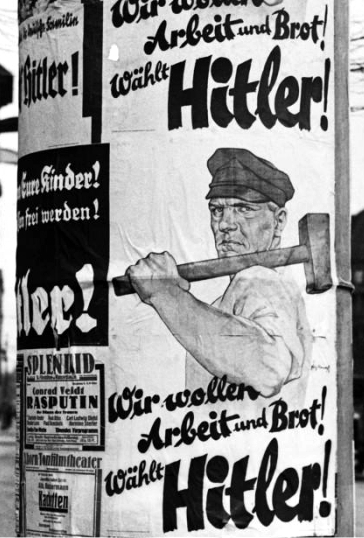
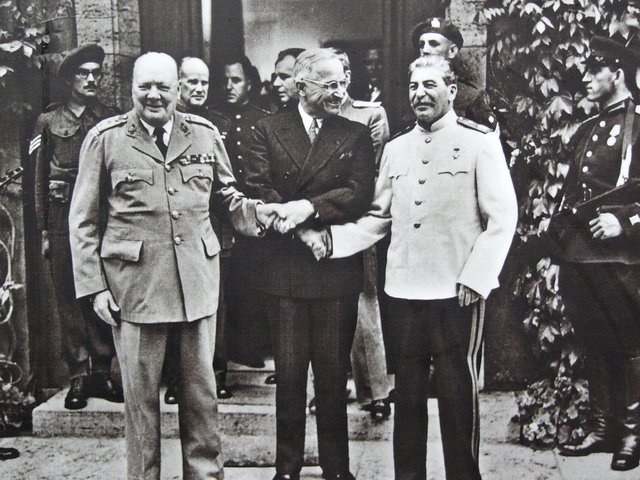
Hannah Arendt IS a very interesting philosopher, and was probably the most insightful critic of fascism. Her teacher was Martin Heidegger, who held onto his fascist beliefs until his dying day.
And yes, I agree. As horrible as fascism was, it didn't rise from a vacuum. The Weimar republic that we imposed on them after WWI, along with the massive debt we saddled them with at Versailles virtually guaranteed the rise of fascism in that country. The allies of WWI are as much to blame for the rise of Hitler as the German people.
Posted using Partiko Android
Es un post de nivel super alto.
Felicidades, no solo es trabajo de investigación, el maquetado esta genial también.
Felicidades.
Hello, as a member of @steemdunk you have received a free courtesy boost! Steemdunk is an automated curation platform that is easy to use and built for the community. Join us at https://steemdunk.xyz
Upvote this comment to support the bot and increase your future rewards!
I find it quite sad that a lot of Germany's historical sites and monuments have been destroyed during the war, as I personally love to visit and admire buildings and sites that were I believe were an integral part of Germany's culture and history. Have you been to Germany before? @blackliberal
@blackliberal you were flagged by a worthless gang of trolls, so, I gave you an upvote to counteract it! Enjoy!!
Congratulations @blackliberal! You have completed the following achievement on Steemit and have been rewarded with new badge(s) :
Click on the badge to view your Board of Honor.
If you no longer want to receive notifications, reply to this comment with the word
STOPDo not miss the last post from @steemitboard:
SteemitBoard and the Veterans on Steemit - The First Community Badge.
Congratulations @blackliberal! You have completed the following achievement on the Steem blockchain and have been rewarded with new badge(s) :
Click on the badge to view your Board of Honor.
If you no longer want to receive notifications, reply to this comment with the word
STOPDo not miss the last post from @steemitboard:
Congratulations @blackliberal! You received a personal award!
You can view your badges on your Steem Board and compare to others on the Steem Ranking
Do not miss the last post from @steemitboard:
Vote for @Steemitboard as a witness to get one more award and increased upvotes!